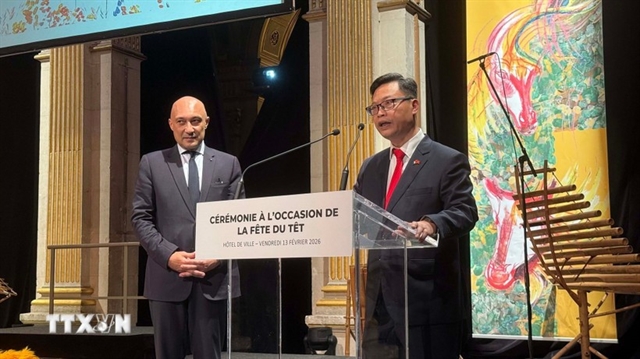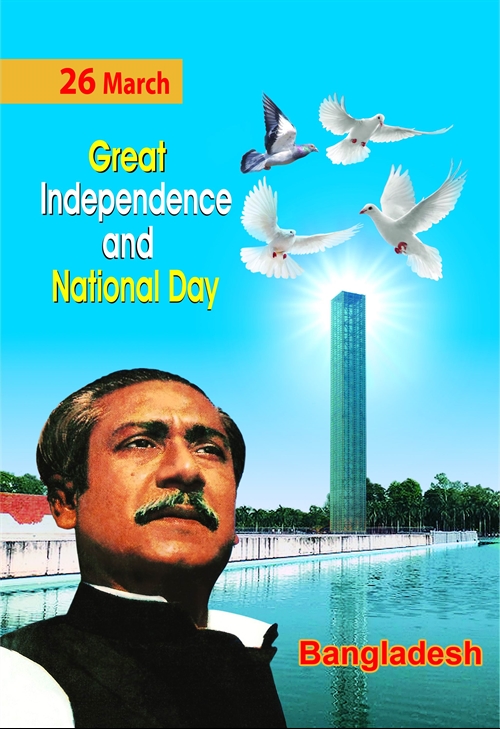 Life & Style
Life & Style

On the occasion of Bangladesh’s National Day today, Việt Nam News presents an article written by the Ambassador of Bangladesh to Việt Nam, Mohammad Shahab Ullah.
 |
| Freedom: Bangladesh celebrates its National Day today, which commemorates its independence from Pakistan on March 25, 1971, declared by Sheikh Mujibur Rahman.– Photo courtesy of the Embassy of Bangladesh |
On the occasion of Bangladesh’s National Day today, Việt Nam News presents an article written by the Ambassador of Bangladesh to Việt Nam, Mohammad Shahab Ullah.
Since its birth, Bengal has harboured the free spirit of entrepreneurs. Its muslin, spices and other premium products have an exclusive market around the globe. Before the colonial accession by the British, Bengal was considered the fourth largest exporting country in the world. The balance of trade was always tilted to Bengal since colonisation.
In recent years, the economy of Bangladesh is taking a fare turn. The economy’s growth has been persistent for a decade, registering 6 per cent growth and promising to reach 7 per cent in years to come. Bangladesh is now trying to establish itself as the next rising star in South Asia for foreign investment. The government has implemented a number of policy reforms designed to create a more open and competitive climate for private investment, both foreign and local.
Bangladesh has been quick to undertake major restructuring for establishing a market economy, a key role played by the private sector. Its current development strategy is based on the creation and distribution of wealth through the acceleration of growth driven by competitive market forces.
The government has moved speedily to translate its vision of becoming a middle-income country by 2021 through policy plans such as the “Seventh Five-Year Plan”, “Perspective Plan”, National Social Security Strategy and Sustainable Development Goals.
Bangladesh has been consistently pursuing an open-door investment policy and playing a catalytic role to augment private investment. The government has steadily liberalised its trade regime. Significant progress has been achieved in reducing non-tariff restrictions on trade, rationalising tariff rates and improving export incentives.
Relevant commercial and securities laws have been updated and modernised. The Industrial Relations Act has been amended to enhance labour market efficiency. Various pro-investor measures are being undertaken to match the global pace. Bangladesh is a winning combination of a competitive market, business-friendly environment and competitive cost structure that can yield the best returns.
Bangladesh has strong growth prospects, a large educated and motivated youth demographic, a strategic location, regional connectivity and worldwide access. It also boasts a strong local market and growth, low energy costs, competitive incentives for exports and economic zones, increasing trade integration and increasing urbanisation.
The broad investment climate of Bangladesh is very much conducive to investors. The government has given the highest priority to augmenting private investment. The regime is considered the most competitive in South Asia. There is no restriction on the amount of share of investment. Foreign investors are eligible to take advantage of a wide range of generous tax concessions and other fiscal incentives and facilities. Investment in Bangladesh is secure vis-à-vis nationalisation and expropriation. To facilitate investment, Bangladesh is signatory to the Multilateral Investment Guarantee Agency of the World Bank Group, the Overseas Private Investment Corporation of USA and the International Centre for Settlement of Investment Disputes. It is also a member of the World Association of Investment Promotion Agencies, World Intellectual Property Organization and the World Trade Organization.
To mitigate the land crisis for industrial use and to create a fully serviced industrial zone, the government has taken measures to build economic zones in the country. As of now, 22 zones comprising 17,000 acres of land were demarcated, of which 19 are in the public sector and three are in the private sector. The government of Bangladesh has undertaken efforts to build 100 economic zones in the country.
The government aims to encourage industrial investment in the private sector and promote necessary facilities and assistance in the establishment of industries. The one-stop service at BOI is invigorated to serve the investors at one stretch in pre- and post-investment facilitation. Related agencies such as the power division, Petro Bangla, National Board of Revenue, WASA, Department of Environment, BTCL and Bangladesh Bank officials are appointed at BOI to facilitate investors in their utility needs and to provide those services at one place.
It is globally established that Bangladesh is comprehensive in its competitive business-friendly environment and cost structure that yields high returns. VNS




